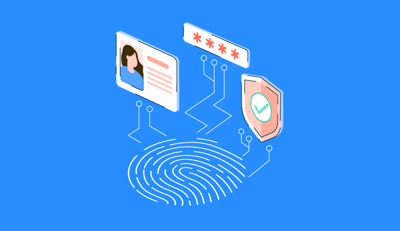July 1, 2024
 by Sagar Joshi / July 1, 2024
by Sagar Joshi / July 1, 2024
.png?width=690&name=G2CM_FI1023_Learn_Article_Images_%5Bvirtual_digital_asset%5D_V1a%20(1).png)
In today’s remote-first world, businesses face challenges like securing desktop access, managing user experience, and controlling IT costs. These issues become more complex with the rising demand for flexible work environments.
By leveraging asset tokenization software, businesses can streamline IT management, ensure data security, and enable employees to work from anywhere seamlessly. Virtual Desktop Access (VDA) provides a centralized platform to deliver secure, consistent desktop environments over the Internet.
Virtual digital assets (VDAs) are digital representations of value, such as cryptocurrencies or non-fungible tokens (NFTs), used for payment or investment. They exclude fiat currency or securities covered by Financial Action Task Force (FATF) regulations.
VDAs are largely unregulated, but they have tremendous potential to make payments cheaper, easier, and faster. On the flip side, they can become worthless if their market observes a downward trend. Since they’re unregulated, virtual assets attract the interest of criminals. Further, every country has its own set of rules regarding these assets, which opens the door to illegal activity.
Discover how VDA and asset tokenization can revolutionize your business.
Before discussing the specifics, it's essential to distinguish between virtual assets, digital assets, and NFTs, as they are often used interchangeably but represent distinct concepts in the digital world.
Digital assets are a broad category encompassing any content or item that exists in a digital format and holds value. This category includes everything from digital files like images, videos, and music to financial records such as bank statements or online account data. Importantly, not all digital assets are designed for trade or exchange.
A key example to consider is a digital bank record, which reflects a person’s ownership of fiat currency in a digital form. While it is indeed a digital asset, it does not qualify as a virtual asset because it isn’t exchangeable for another form of asset. It merely represents ownership and doesn't hold an intrinsic value that can be traded or converted into another asset.
Virtual assets, on the other hand, are a specific subset of digital assets that can be traded, exchanged, or used as a medium of exchange. These include cryptocurrencies, tokens, and other assets that can be used for transactions or investment purposes. For instance, stablecoins exchanged for other currencies or assets are classified as virtual assets because they have inherent value and can be traded.
Non-fungible tokens (NFTS) add an interesting layer to this conversation. NFTs are unique digital tokens typically associated with digital artwork, collectibles, and other one-of-a-kind assets. While NFTs are part of the digital asset world, they don’t automatically qualify as virtual assets unless used or exchanged for payment or investment purposes. When NFTs are traded, especially in exchange for fiat currency, they fall under the regulations of the Financial Action Task Force (FATF) and are subject to its standards for virtual assets.
Virtual digital assets are important for a variety of reasons, including innovation and transparency.
Decentralized finance (DeFi) is one of the core components of digital assets, which use decentralized digital ledgers to record asset ownership and exchanges. Powered by decentralized identity systems, it lets consumers trade digital assets without involving a central party or a traditional financial institute. This minimizes many transaction-related costs and occurs at a faster rate than normal transactions that involve banking authorities.
Moreover, transactions of VDAs are recorded on a distributed and digital ledger that anyone can view. This transparency makes transactions clearer among the parties involved.
Virtual digital assets like cryptocurrency offer new ways to invest and transact. People can transfer money globally at a cheaper cost. Moreover, NFTs empower artists to sell their work to collectors, opening a new revenue stream.
When used cautiously, virtual digital assets can be beneficial in driving new revenue and investment earnings.
Most virtual digital assets work on blockchain technology, a digital ledger that maintains a record of transactions so that none can be modified retroactively. Cryptocurrencies like Bitcoin and Ethereum also work on the same blockchain technology. It keeps transactions secure, transparent, and safe from tampering by any party.
When you own a virtual digital asset, you have a unique digital key that proves your ownership. Your digital wallet stores this key. You use the same key to perform the transaction whenever you need to access, transfer, or trade these digital assets.
The transactions will be verified by the computers on the blockchain network, maintaining legitimacy while reducing fraud risks.
Let’s keep it simple and divide VDAs into two types:
You also have crypto, tokenized, or security tokens in addition to the above that belong to the family of virtual digital assets.
Interestingly, according to some laws and regulations, even if you receive an NFT as a gift, you’re liable to pay taxes according to regional regulations.
FATF is an intergovernmental body that sets international standards to protect digital assets from illegal activities. More than 200 countries and jurisdictions have committed to implementing FATF recommendations to prevent corruption and terrorism.
At the national level, the Ministry of Finance is setting up or has already set tax laws related to virtual digital assets. For example, the transfer of VDAs is taxable at a rate of 30% in India. In the U.S., crypto is treated as a digital asset, taxed like stocks or bonds. Gains are taxed as capital gains or income, depending on how you acquired and held the crypto.
You can easily create a digital proof of ownership for your liquid assets through asset tokenization. They carry real-world capital, and so they’re different from security tokens.
After tokenization, you can use these assets worldwide without any broker, bank, or institutional trader.
Blockchain guarantees ownership of assets to individuals or companies that tokenize their real-world liquid assets. You cannot alter or delete this ownership without making a new transaction.
To tokenize your real-world assets, you need an asset tokenization platform to assist you with asset evaluation and pricing confirmation. Make certain these platforms generate smart contracts for investors who purchase such assets.
Asset tokenization software simplifies the process of converting physical and digital assets into secure, blockchain-based tokens, enabling improved transparency, efficiency, and scalability. Let’s explore some of the top asset tokenization platforms driving innovation in this space:
*These are the five leading asset tokenization software solutions from G2's Fall 2024 Grid® Report.
These platforms will help you transform real-world assets into digital assets easily.
Virtual digital assets open up new finance, art, and gaming opportunities. However, they also come with obstacles, including regulatory and security concerns.
Since VDAs are decentralized and lightly regulated, they’re prone to end up in the wrong hands. However, if you use them according to the recommendation of FATF, you’ll benefit from the flexibility they offer in transactions.
Want to tokenize real-world assets? Try free asset tokenization platforms and transform liquid real-world assets into digital assets.
Sagar Joshi is a former content marketing specialist at G2 in India. He is an engineer with a keen interest in data analytics and cybersecurity. He writes about topics related to them. You can find him reading books, learning a new language, or playing pool in his free time.
Until recently, the word “workplace” evoked images of desks, computers, phones, conference...
 by Suresh Sambandam
by Suresh Sambandam
Real-world assets like real estate or art don’t come cheap. The barrier of entry is sometimes...
 by Sagar Joshi
by Sagar Joshi
Until recently, the word “workplace” evoked images of desks, computers, phones, conference...
 by Suresh Sambandam
by Suresh Sambandam



